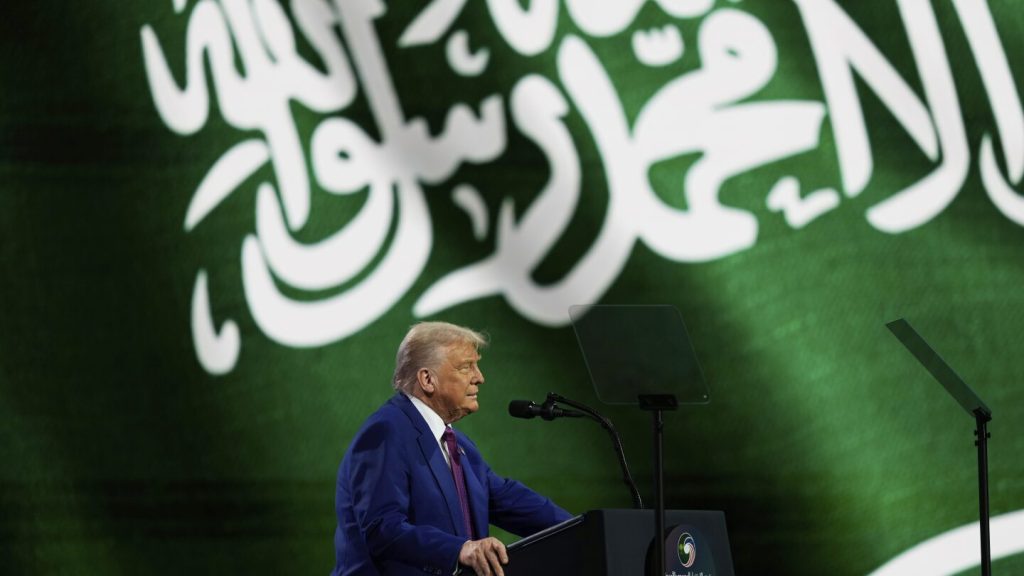Trump Critiques U.S. Past in Saudi Arabia
In Riyadh, President Donald Trump addressed an audience that included Saudi royalty and American billionaires, where he criticized what he termed past U.S. meddling in affluent Gulf nations. He remarked on the shift away from American officials lecturing Middle Eastern leaders on governance.
Audience Reception
Among the listeners, Saudi Crown Prince Mohammed bin Salman was particularly attentive. Additionally, Saudi journalists, rights activists, and business figures—many of whom had fled the kingdom—were present. They expressed concern that Trump’s remarks implied a retreat by the U.S. from a long-standing commitment to global human rights advocacy.
Reactions from Saudi Advocates
Abdullah Alaoudh, an advocate for prisoners, shared his distress, noting that his father, a well-known cleric, is still imprisoned despite the release of many others as part of what is perceived to be an improved human rights record under Prince Mohammed. Abdullah pointed out that Trump was addressing the very individual who had a hand in his father’s imprisonment.
Trump’s Focus on Partnership
A spokesperson for the White House stated that Trump’s address celebrated the growing partnership between the U.S. and Saudi Arabia, emphasizing efforts for peace in the Middle East. There was no response regarding whether human rights topics were discussed during meetings with Gulf leaders.
Less Emphasis on Human Rights
Trump’s official visit to the region included Qatar and the UAE and received surprisingly little focus on human rights, a departure from standard U.S. practices in visits to nations with poor rights records. Human rights groups raised concerns but opted for a quieter approach, as some Saudi exiles in the U.S. hesitated to voice criticisms.
Shifting Human Rights Dynamics
Some Saudis in the U.S. are becoming more cautious regarding public statements, fearing the crackdown seen by other activists. The organization Democracy in the Arab World Now has advised those with immigration challenges to exercise caution in their comments and actions.
U.S. Position on Human Rights
While Prince Mohammed has eased restrictions on some imprisoned activists to mitigate past criticisms, significant numbers remain incarcerated. Groups highlight the U.S.’s declining human rights reputation, which complicates its position to criticize other nations. Activists express that the U.S. lacks the moral authority to challenge foreign human rights abuses, given its own troubled record.



